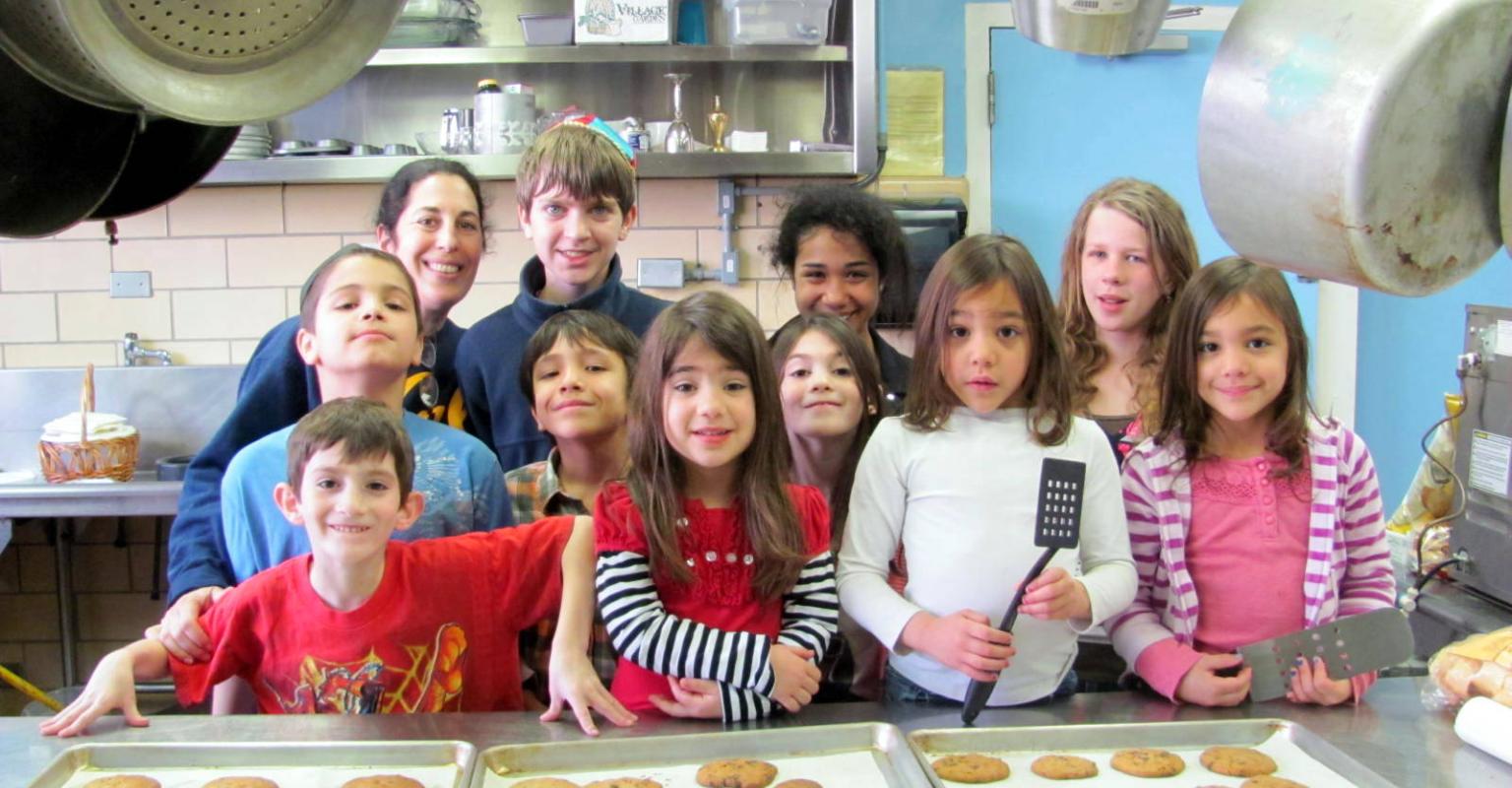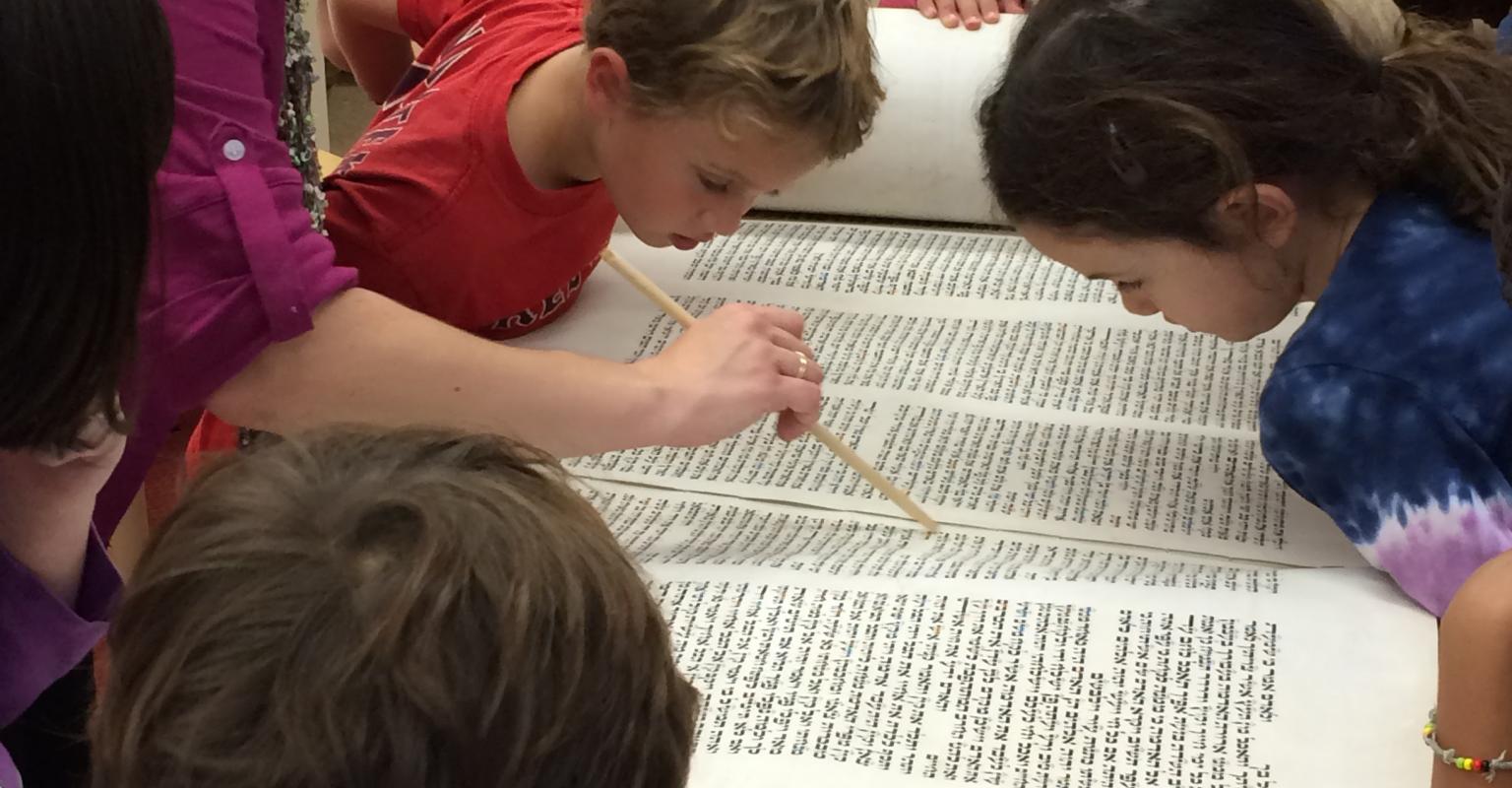Intergenerational Model: Shorashim - For Living Judaism Beyond the Classroom
Temple Israel Center White Plains (TIC), White Plains, NY

Model Summary:
Temple Israel Center of White Plains (TIC) employs full-time Jewish educators to run their educational model for all learners. This model encourages educators to go beyond the classroom by engaging learners at the synagogue and in homes, as well as in the community. The idea is for learners to see the educators as role models in the kitchen, during prayer as well as in all aspects of daily Jewish life. Full-time educators meet frequently as a team and, by the nature of being full time, can devote all of their creativity and passion for designing and implementing powerful learning experiences within a specific community.
Who are the Learners?
Everyone in the community, regardless of age, is a learner and has the potential to come in meaningful contact with one of the full-time educators.
Who are the Educators/Learning Facilitators?
The educators are full-time community educators; this title illustrates and demonstrates their relationship to the community. They are educators for everyone, not just for learners in Shorashim (K-6) or Havurat Torah (7-12).
When Does the Learning Happen?
There are specific times during the week when learning happens, but learning can happen anytime, such as on Shabbat and holidays and during youth group, and in any place. It is the whole of life and Jewish living.
Where Does the Learning Happen?
In the building… outside in the community… wherever living takes place.
What is the Learning? How is it Designed?
-
TIC’s curriculum is learner-directed.
- A big piece of the learning is enabling the learner to live it and there is room for every learner to live differently or express various perspectives.
What Were You Trying to Achieve with this Model?
It became apparent through a survey that parents wanted to be at the synagogue fewer times a week and still wanted the same excellent education. The only solution that the director of congregational learning could think of was to hire full-time educators. TIC has part-time educators only in grades K-2 and 6th grade. K-1 students are at TIC once a week; second-grade students come twice a week, and 6th graders have many other commitments so the congregation decided to focus its energy on grades 3, 4, 5, and 7-12. Funding limitations were also a factor in this decision.
Key First Steps and Recruitment Plan:
- The recruitment is informal. People learn about the model in a variety of ways including community articles, local newsletters, online, town hall meetings, word of mouth, etc.
Role of governance and Clergy:
All of the clergies are partners in the education of the learners. There is no differentiation among clergy roles because there is so much crossover between Shabbat and Holidays. Everyone has a turn to take many different roles with the various groups.
Budget:
- Salaries of community educators range from $44,500 to $52,000.
Hiring Needs:
-
All community educators have a Masters in Education and some kind of camp background or informal background, USY- experience, or have worked in a Jewish museum. Each of the full-time educators has a combination of formal and informal Jewish experiences.
-
They must be good at working with multi-age groups of learners as well as able to build relationships with different people of all different ages.
-
They have to understand that they are facilitators of learning and not sources of all the knowledge.
-
They have to be team players, risk-takers. They have to say YES before they say NO.
- Each team member also needs to practice self-awareness.
Relationship of Model to Congregational Learning System:
This is a replacement for the grades mentioned above.
How Do You Describe Your Congregation?
TIC is a large Conservative, egalitarian congregation with 840 families. There are 2 rabbis, a ritual director and a cantor, and 7 full-time educational staff and 5 part-time staff. TIC is an inclusive community that creates experiences that encourage each person to actively participate in a meaningful Jewish life leading to the intellectual and spiritual growth of members regardless of age or of background. Central to our community are the values of Torah, prayer, gemilut chasadim (acts of loving-kindness), community, support of Israel, and lifelong learning.
- Models-In-Action
- Intergenerational Learning
- Not Grade Specific
- After School Programming
- Congregational Learning
- Teen Engagement
- Educator Training
- Family Engagement
Discover more

A collection of Intergenerational Learning Models for innovation in Congregational Learning

Ahavat Achim Synagogue, Atlanta, GA. Students and their families meet five times a year, outside of regular religious school hours, as a group based on geographic location, to celebrate and learn about mitzvot.

Mayim, our initial example of "Additional" Models, could be placed in a Multi-aged, Project-Based Learning, or Experiential Learning bucket. Mayim is a K-5 learning community in which depth of relationships and depth of learning are intentionally fostered and visible everywhere.
